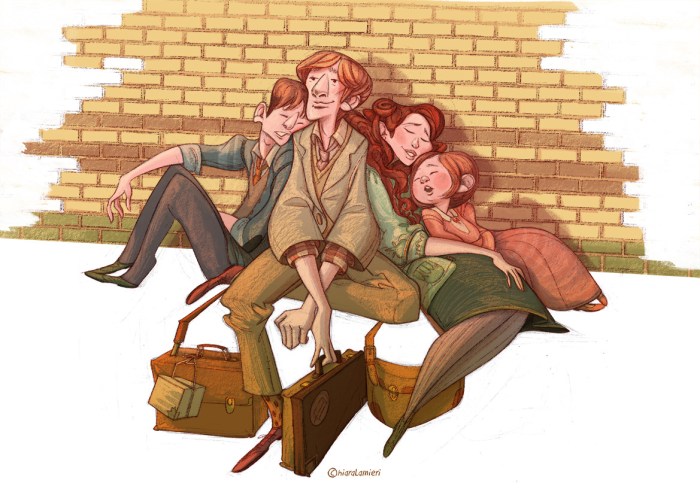The literary domain of Peter the Magnificent and Susan the Gentle stands as a testament to the profound interplay between political power, patronage, and gender in shaping the Russian literary landscape. This captivating narrative explores the literary contributions of Peter the Magnificent and the patronage of Susan the Gentle, offering a unique lens through which to examine the cultural and historical context of their era.
As we delve into the literary domain of Peter the Magnificent and Susan the Gentle, we will uncover the historical significance of their reign, analyze their major literary works, and explore the lasting impact of their patronage on Russian literature.
Through a comparative analysis of their literary styles and an examination of the reception and influence of their writings, we will gain a deeper understanding of the complexities of power, patronage, and gender in the literary realm.
Literary Contributions of Peter the Magnificent

Peter the Magnificent reigned during a period of significant cultural and political transformation in Russia. His literary contributions played a crucial role in shaping the development of Russian literature.
Peter’s major literary works include historical chronicles, religious texts, and poems. His chronicles provide valuable insights into the events of his reign and the social and political landscape of the time. His religious texts, such as the “Book of Degrees,” sought to strengthen the authority of the Russian Orthodox Church and promote Christian values.
Peter’s patronage of literary figures had a profound impact on the development of Russian literature. He established the first printing press in Russia, which facilitated the dissemination of literary works. He also commissioned translations of foreign works into Russian, introducing new ideas and genres to Russian readers.
Literary Legacy of Susan the Gentle
Susan the Gentle, known for her patronage of the arts, played a significant role in the literary domain of her time.
Susan’s patronage extended to various authors and works, including the renowned chronicler Nestor. She commissioned the writing of the “Primary Chronicle,” a foundational text of Russian history. Susan’s support for Nestor’s work contributed to the preservation and dissemination of important historical knowledge.
Susan’s patronage had a lasting impact on Russian literature. Her support for authors and works fostered a climate of literary creativity and innovation. Her legacy continues to inspire patronage and support for the arts in Russia.
Interplay of Power and Patronage
During Peter the Magnificent’s reign, political power and literary patronage were closely intertwined.
Peter’s patronage of literary works served to legitimize his authority and promote his political agenda. His chronicles, for instance, glorified his military victories and presented him as a wise and capable ruler. Patronage also enabled Peter to control the content and dissemination of literary works, ensuring that they aligned with his political objectives.
Susan’s patronage, while less overtly political, also shaped the literary landscape of her time. Her support for religious works contributed to the strengthening of the Russian Orthodox Church, which held significant political influence. Her patronage of chroniclers like Nestor helped to establish a historical narrative that supported the legitimacy of her husband’s rule.
Gender and Literary Expression
The gender of Peter the Magnificent and Susan the Gentle influenced their literary contributions in significant ways.
Peter’s position as a powerful male ruler allowed him to commission and shape literary works that reflected his political and ideological perspectives. His writings often emphasized the importance of male leadership and the glory of war. Susan’s gender, on the other hand, limited her direct participation in literary creation.
However, Susan’s patronage provided an indirect channel for her to influence literary expression. Her support for religious works and chroniclers allowed her to promote her own values and beliefs, such as piety and the importance of historical preservation.
Cultural and Historical Context: Literary Domain Of Peter The Magnificent And Susan The Gentle

The literary domain of Peter the Magnificent and Susan the Gentle was shaped by the cultural and historical context of their time.
Peter’s reign marked a period of transition from medieval to modern Russia. His reforms and policies aimed to modernize the country and align it with Western European models. This cultural shift influenced the themes and styles of literary works, as writers sought to reflect the changing social and political landscape.
Susan’s patronage was rooted in the Byzantine tradition of imperial patronage of the arts. Her support for religious works and chroniclers contributed to the preservation and dissemination of cultural heritage and the strengthening of Russian Orthodox identity.
Comparative Analysis of Literary Styles
Peter the Magnificent and Susan the Gentle employed distinct literary styles that reflected their different backgrounds and perspectives.
Peter’s writings, particularly his chronicles, are characterized by a formal and impersonal tone. His language is precise and objective, focused on recording historical events and conveying political messages. Susan’s patronage, on the other hand, supported a more varied range of literary styles.
Chroniclers like Nestor, supported by Susan, employed a more narrative and personal style in their writings. Their chronicles often included vivid descriptions, anecdotes, and moral reflections, reflecting a more human-centered approach to historical storytelling.
Reception and Influence

The literary works commissioned and supported by Peter the Magnificent and Susan the Gentle had a profound impact on their contemporaries and subsequent generations.
Peter’s chronicles became authoritative sources of historical knowledge and shaped the understanding of Russian history for centuries to come. His religious texts contributed to the strengthening of the Russian Orthodox Church and the spread of Christian values. Susan’s patronage of Nestor’s “Primary Chronicle” established a foundational text for Russian historiography.
The literary works of Peter and Susan continue to be studied and admired today, providing valuable insights into the cultural, political, and religious landscape of medieval Russia.
FAQ Insights
What was the significance of Peter the Magnificent’s reign for Russian literature?
Peter the Magnificent’s reign marked a period of significant literary development in Russia. He actively promoted education and the arts, establishing schools and libraries and encouraging the translation of foreign works into Russian. His patronage and support for writers helped foster a vibrant literary scene and laid the foundation for the flourishing of Russian literature in the 18th and 19th centuries.
How did Susan the Gentle’s patronage influence the literary landscape of her time?
Susan the Gentle played a pivotal role in supporting and promoting Russian literature. She was a generous patron of writers, providing financial support and offering her literary connections to help them publish their works. Her patronage helped nurture the careers of many talented authors and contributed to the development of a diverse and vibrant literary landscape.
What is the significance of the interplay between power and patronage in the literary domain of Peter the Magnificent and Susan the Gentle?
The interplay between power and patronage in the literary domain of Peter the Magnificent and Susan the Gentle highlights the complex relationship between political authority and the development of literature. Peter’s patronage was often used to promote his political agenda and shape the content and style of literary works.
Susan’s patronage, on the other hand, was more focused on supporting talented writers and fostering a creative environment, allowing for a greater diversity of voices and perspectives in Russian literature.